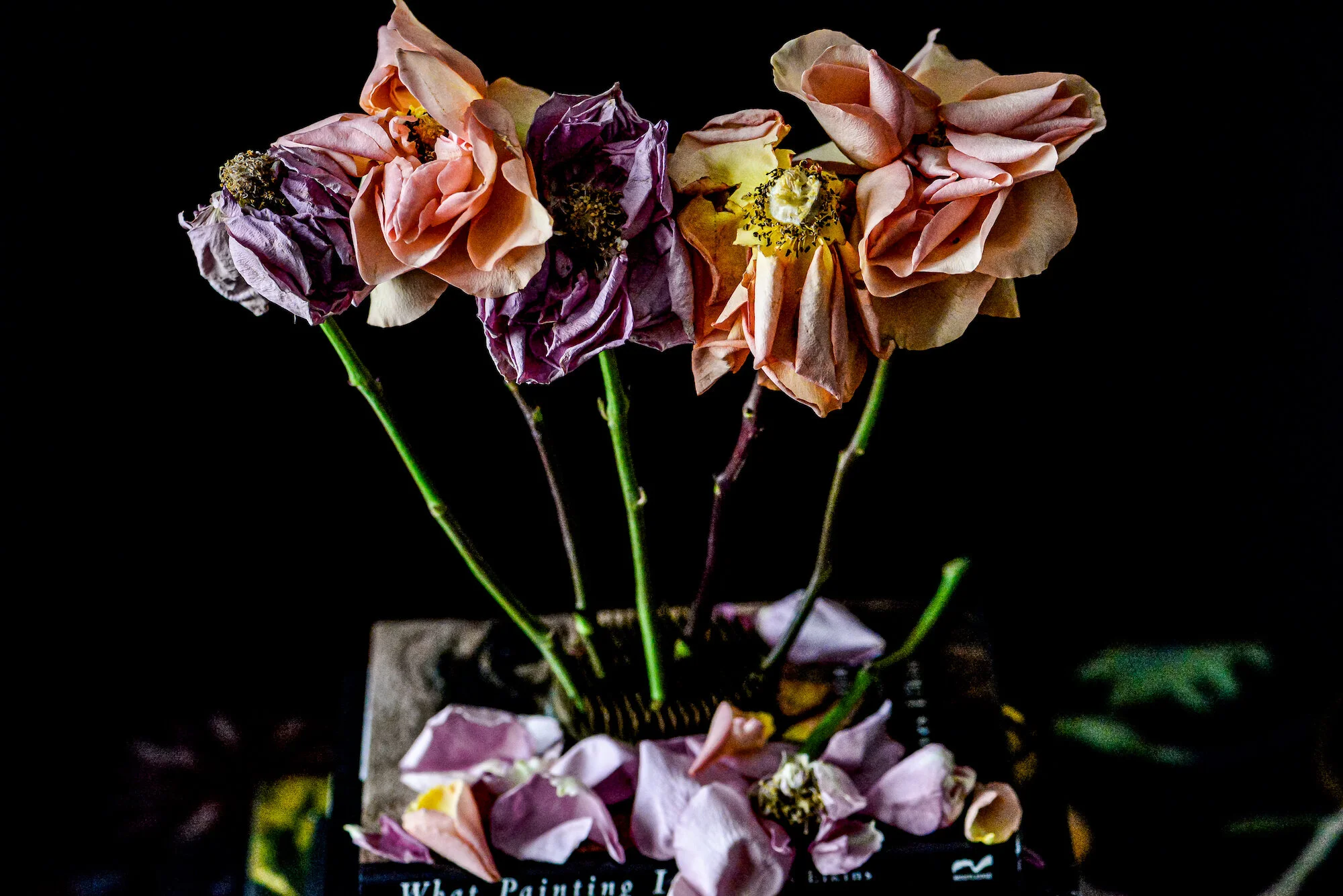It’s Not Time We Lack
When our daughter was in high school, I wrote out (in my terrible handwriting) a quotation by Adam Zagajewski on a piece of paper torn out from a small spiral notebook. And she had it on her bulletin board until she left home. It read:
“It’s not time we lack, but concentration. ”
This from his book of essays, Another Beauty. In the same book he says,
“Anyone who writes, or tries to write, and plans his day around the thought of the task which awaits him, has to grapple with two basic problems: 1. how to get up in the morning, and 2. (if he manages the first) how to get to sleep at night.”
We artists, we writers, are in training every single day, mentally, physically. I’ve often said this over the years. And we live in exhausting and brutally heartbreaking times. I didn’t post yesterday as is my usual thing to do on Friday, as my heart was wrecked because of the plane crash in which my city lost 13 of our beautiful people. There’s no shortage of tragedy these days, but this one obviously hits so damned close to home. What else can we do but declare peace?
I really have felt useless these last few years in so far as being able to say helpful or comforting things with any nuance, in the face of the crises of the world. I’ve felt at a loss, honestly. I’ve just generally felt despair and intermittently one’s heart breaks for others’ losses. I know I’m not alone.
I try to leave the despair out of my posts. Partly because I feel that my work here is to create a space of peace and thoughtfulness. There’s no avoiding the harsher news out there and it’s not difficult to find, and you’re all extremely competent humans, capable of sourcing your own news, so I don’t need to repeat it here. Which is not to say that it doesn’t all weigh heavily.
It almost seems absurd some days to remind everyone to attend to the beauty of the world. But here again, AZ:
“To tend the world: read a little, listen to a little music.”
We do need, all of us, to keep living, and to remember that we need art to ask the difficult questions, to pose alternatives, to dream for us, and imagine better worlds. Do we need to defend beauty, poetry?
“Imagine someone who wants to write a defence of poetry. He prepares scrupulously, and spends years on the book. He’s three-quarters done when he notices that he’s unconsciously begun attacking poetry; he doesn’t like it anymore, he sees only its artificiality and pretensions, its bookishness, its inability to answer the most difficult and fundamental questions. But then, as he draws near the end, he forgives poetry once again for its obvious imperfections, and thinks that this precisely is the point: to be able not to answer the most difficult questions, and keep living anyway.”
– Adam Zagajewski
It’s difficult to write, to make art, to concentrate, when you’re feeling unsettled, when you have trouble waking up or going to sleep. What can we do now but to make art out of this feeling then? What can we do now but insist upon peace? What can we do but sit with the difficult questions, keep living?
The intro to the Zagajewski book is by Susan Sontag, and she says of it, and of the writer, “There is despair, but there is, just as inexorably, consolation.” She says there is in the writing “anguish, but then serenity keeps breaking through.”
The book is, in Sontag’s words, written by a “subtle, important mind divided between the public world and the claims of art.”
We are not likely to answer all the difficult questions, but we must concentrate. We must persist. We must wake up in the morning and go to sleep at night. And if not that, then we must use insomnia to our advantage.
The temperatures in Edmonton are dipping to minus thirty (and even minus thirty-six for a low is in the forecast) all this week ahead. These photos were taken Friday afternoon, after three days of work, coming home to a dark house every day, and not being able to figure out which button on my camera I had inadvertently pushed to make everything dark at every setting. (It was the ISO of course). The roses I’d bought at Safeway were starting to drop their petals, and I wasn’t done with them; I felt I had to hurry. But there they are, and they waited for me. They still had a few utterances. A few things to say.










